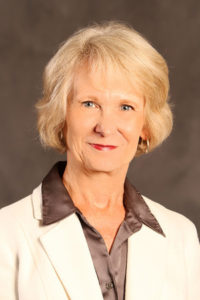Despite a wave of criticism from nurses, Brian Kemp remains unapologetic on his decision to replace the head of the state’s nursing board.

The Georgia secretary of state told GHN last week in an interview that he’s not going to reverse his move to replace Jim Cleghorn with the head of the state’s cosmetology board.
“I made this decision to move our agency forward,’’ Kemp said. Though he recently postponed the change, it is still on, and he says it will bring good results.
Kemp noted that he has switched other executive directors among the 39 licensing boards he oversees. He said those changes were for cross-training purposes, and so is the one that will move Cleghorn.
“No other boards have complained at this level,” he said. “People [criticizing the decision] haven’t talked about how hard we’ve worked for nurses.’’
Defending his record on supporting nurses, he cited appointing Cleghorn in 2010; creating a more efficient operation, including hiring employees for a nursing-specific call center; and hiring investigators to pursue complaints against nurses.
Bid to move board
Leaders in the nursing profession, meanwhile, are discussing a way for their board to move out of Kemp’s office, as the pharmacy and dental boards did in 2013.
“We have gone down a path with the secretary of state, who really has limited communication with us, and makes decisions without communicating with us,’’ said Brenda Rowe, immediate past president of the Board of Nursing.

“We deal with a lack of respect of us and our profession,’’ added Rowe, a faculty member at Georgia Baptist College of Nursing of Mercer University.
Making the nursing board independent would require action by the General Assembly, and Rowe conceded that persuading legislators to take such a step “is not easy.’’
Nevertheless, she told GHN, some legislators have expressed support for the nurses.
Board member Nancy Barton said that “we have outgrown the current organizational structure,’’ the AJC reported recently.
Kemp, after his original June decision on Cleghorn, announced that he would postpone the switch for a year, until next August. Kemp said that because his office’s nursing education consultant position is vacant, “it is not the best time to make this change.’’
The decision to change executive directors, Kemp said in a July letter, was intended to ensure that institutional knowledge of the Georgia Board of Nursing would shared by several staff members “in case a sitting executive director ever chose not to, or could not, continue in their position with my office.”
Linda McCauley, dean of the Emory University School of Nursing, told GHN recently that despite the delay in Cleghorn’s ouster, nurses were puzzled over the move.
“We still don’t understand, given all that the board of nursing has been through, why he [Kemp] would want to disrupt the leadership,” McCauley said. The board, she said, “has been functioning at an optimal level for the last year.”
In a letter this week to stakeholders, the board of nursing said complaints against nurses received by the board have increased over 78 percent during the last year, yet under Cleghorn’s leadership the average time of resolving complaints has decreased.
The board “has the responsibility to approve the selection of a qualified executive director,” the letter added.
The board ‘’unanimously passed a motion of non-approval’’ for Andrew Turnage, who now heads the cosmetology board and is Cleghorn’s designated replacement on the nursing board.
Rowe said each board member “wants to do our very best to protect the public.”
Vowing ‘to fight complacency’
Kemp, who was elected to his position in 2010 after a career in business and two terms in the state Senate, told GHN that he has not consulted with other licensing boards before taking personnel actions involving those boards.
“I don’t expect the nursing board to give me a head’s-up on policy they’re working on,’’ he added.

“We feel we have the most efficient licensing operation in the state,” Kemp said. He said the medical board, which regulates physicians, receives a state appropriation that averages $50 per licensee. The nursing board gets $15 per licensee, he said, citing fiscal 2015 figures. With more dollars, he added, “we can add more people and be more efficient.’’
Kemp said he has moved to cross-train chiefs of licensing boards “to fight complacency and move the needle on complaints and compliance.”
Nurses’ argument that the switch from Cleghorn to Turnage might affect patient safety “is ridiculous,” Kemp said. The Legislature and the Board of Nursing set policy, he said, indicating that he doesn’t get involved in that.
“Our job is to move paperwork through the agency, to handle complaints and compliance,’’ he said. Having good administrators is key, he said. “That’s why we have made these changes.”
“I feel Andrew Turnage has been treated unfairly,” Kemp said.

One of the more outspoken – and prominent – critics of Kemp’s move has been state Sen. Renee Unterman, a Buford Republican who’s also a nurse.
She told GHN recently, “I think it’s a shame to treat nurses this way.”
“Why upset the apple cart when their situation has advanced other than to show executive power?’’ she said. “I don’t understand, nor do the nurses. Cross-training can be accomplished without changing the executive director.”
There are other nursing issues that need attention, Unterman said.
Kemp’s response was blunt: “Senator Unterman is not running the day-to-day operations of the secretary of state’s office.”
He told GHN that his decision was part of an effort to help all licensees under his office. “We’re fighting to make things better for the rank-and-file nurse.”

